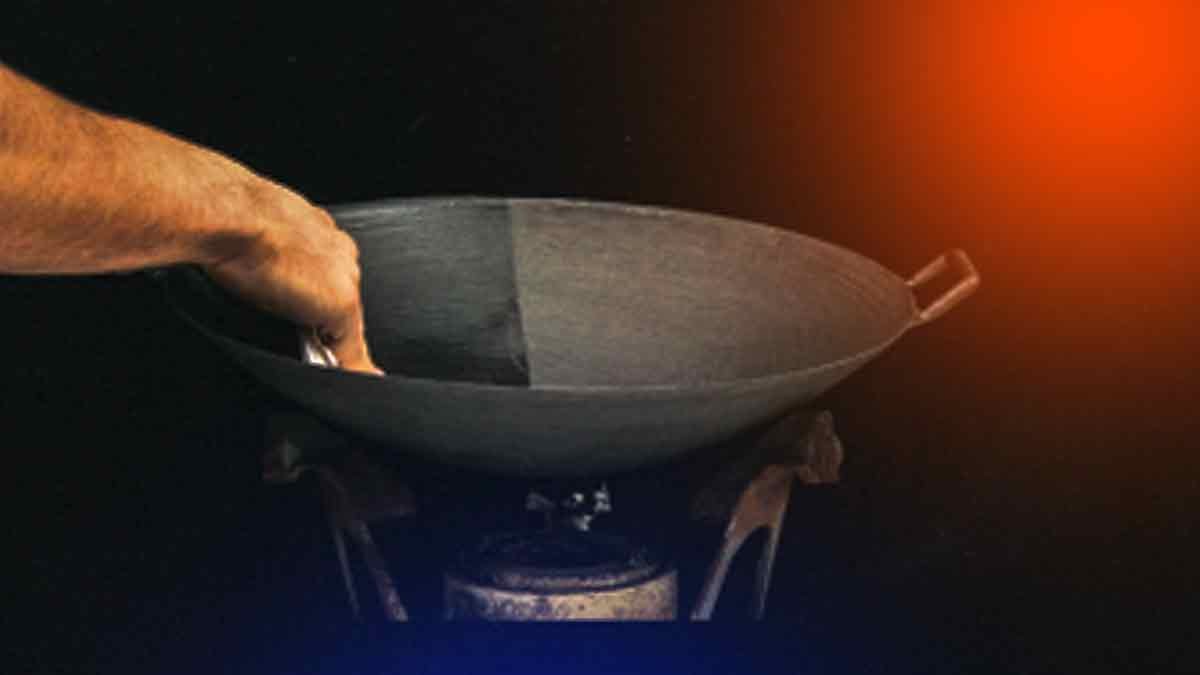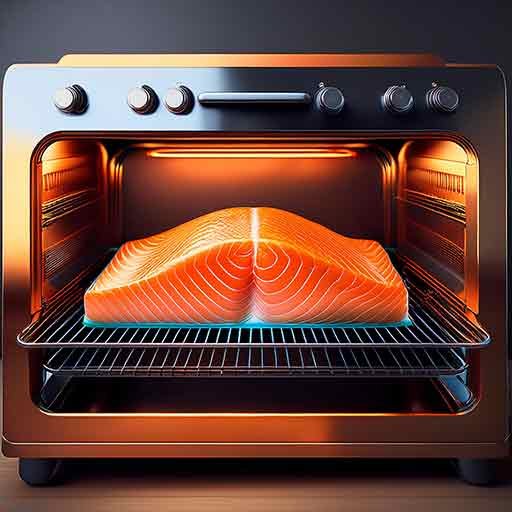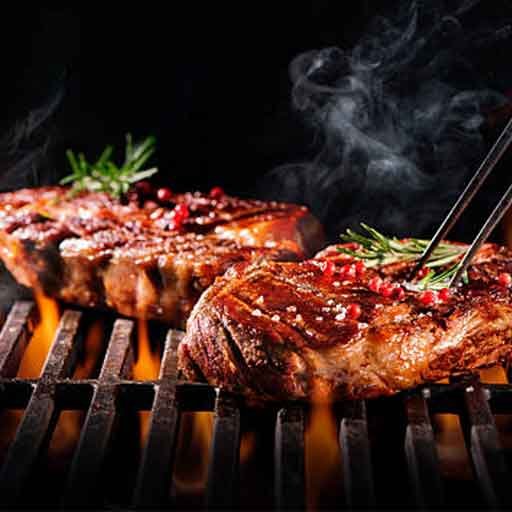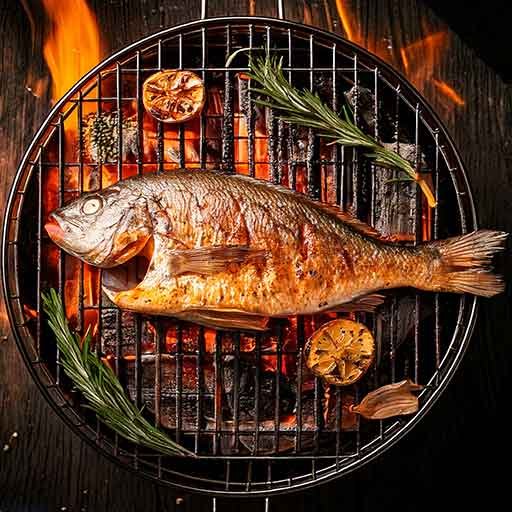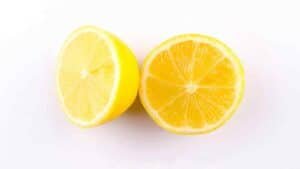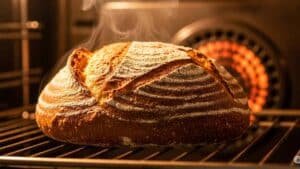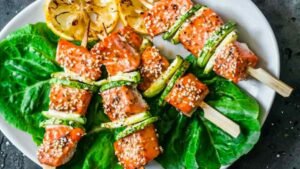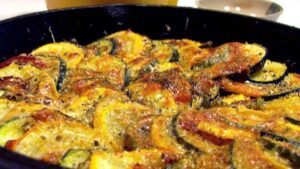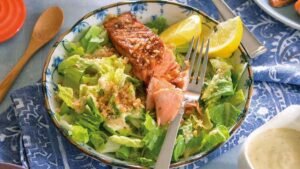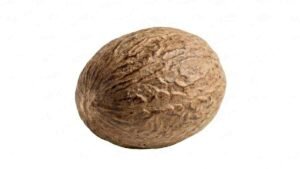Unlike electric, nonstick, and stainless-steel woks, carbon-steel and cast-iron woks require seasoning, or the building up of a black patina, with each use. This patina eventually creates a nonstick surface and protects your wok from rusting.
Here are the four steps for removing the manufacturer’s coating on a new wok and seasoning it:
Scrub the wok
Scrub the wok both inside and out with a scrubby pad with dish soap and hot water. Rinse and dry the wok with a dish towel.
Place the wok over a medium flame
Place the wok over a medium flame to completely dry the wok. When the wok is hot, turn off the heat and, using a folded paper towel held with kitchen tongs, rub a teaspoon of vegetable oil all over the inside of the wok. Allow the wok to cool, then wipe away the excess oil with a dry paper towel.
Return the wok to medium-high heat
Return the wok to medium-high heat until a drop of water sizzles and evaporates on contact. Pour in 3 tablespoons oil and swirl to coat the base of the wok. Add a handful of unpeeled ginger slices and let them sizzle in the oil for about 30 seconds, swirling gently. Reduce the heat to medium add a handful of peeled garlic cloves and toss the ginger and garlic until aromatic. This technique will help remove the new wok’s metallic taste. Turn off the heat, discard the oil and aromatics, and allow the wok to cool completely before rinsing it with hot water and drying it with a dish towel.
Place the wok over a medium flame
Place the wok over a medium flame. When the wok is hot, turn off the heat, and using a folded paper towel held with kitchen tongs, rub another teaspoon of vegetable oil all over the inside. Allow the wok to cool, then wipe away the excess oil with a dry paper towel. Woohoo! Your new wok is ready to use.
Learn The Cooking
Broiling
Broiling is a cooking method that directly uses infrared radiant heat from an overhead source such as an overhead broiler or salamander to cook food. in simple this seems like grilling from a top heat source. Temperatures at the heat source can be as low as 550 °F (288 °C) and as high as 2000°F…
Grilling
Grilling is similar to broiling, grilling uses a heat source located below the cooking surface. Heat is transferred to the food via infrared radiant heat and conduction between the food and the grill rack itself. Grills can be gas, or electric, or they can Charcoal or burn wood. Solid metal pans with grooved surfaces can…
Barbecue
Barbecue is a dry heat cooking method that involves baking or roasting. In traditional barbecue, large, usually tough, cuts of meat are cooked in a semi-enclosed oven (called a pit) by natural convection with smoke from a low-temperature wood fire, usually Below 225°F (107°C). True barbecue is a slow process, requiring hours of low-temperature heat…
